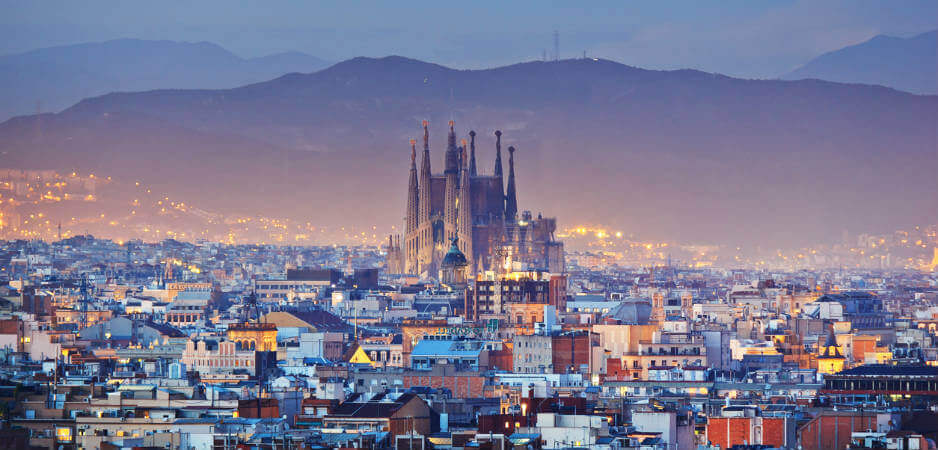The history of Barcelona is permeated with its struggle against fascism.
Barcelona is one of the most beautiful cities in the world, but even today it carries the scars of Spanish Civil War — a war that ended more than 70 years ago but still has relevance to our times. The Gothic Quarter is one of the most elegant parts of Barcelona’s old town, with narrow cobbled streets lined by historic buildings and away from the hustle and bustle of La Rambla. Here one can visit Plaça Sant Felip Neri, or Saint Neri Square, which is one of the most romantic parts of Barcelona. However, it has a tragic past. Here we have a small Gothic church, which is the one the famous architect Antoni Gaudi attended on the day he was hit by a tram in June 1926.
But that is not the worst of it. During the Spanish Civil War, a fascist bomb partly destroyed the church and killed many who were sheltering inside, including 20 schoolchildren. After Barcelona fell to the fascists, they lined up dozens of their opponents against the church wall and shot them dead. The wall is pockmarked with bullets passing through the bodies of men.
No doubt in those days there would be bloodstains on the wall. Faiz’s words “How long will it take for blood stains to wash off?” came to mind. Bloodstains do wash off in time but bullet holes and visions of death remain.
The Spanish Civil War was a dress rehearsal for the Second World War and was fought between July 1936 and April 1939. The opponents were the ultra-right-wing nationalists — fascists, lead by General Franco, and a hodgepodge collation of Republicans consisting of ultra-left-wing communists, socialists, liberals and anarchists with different agendas, with the only thing in common being the need to resist fascism. While Germany and Italy were helping Franco, their opponents received patchy support from USSR, UK, France and USA.
Many volunteers from various countries travelled to Spain to fight against fascism, and perhaps the most colourful of these were the liberal intellectuals, writers and poets who came to support the Republican cause. Among these were the Noble Prize-winning American author Ernest Hemingway, who spent the war as a correspondent and later on wrote his famous novel, For Whom the Bell Tolls, about the partisan struggle. The female lead of this story is Maria, who symbolizes Spain, brutalized and ravaged yet still beautiful and avidly alive.
Another famous writer was the British poet A. H. Auden who worked as an ambulance driver for the Republicans. He subsequently wrote the poem “Spain,” not allowed to be published due to political sensitivities of the time. Reading the poem after every new atrocity in the news can still send shivers down one’s spine:
The stars are dead. The animals will not look.
We are left alone with our day, and the time is short, and
History to the defeated
May say alas but cannot help nor pardon.
Barcelona’s celebrity of the war was the British writer George Orwell, who later wrote the seminal Animal Farm and 1984, which gave the world Big Brother. Orwell fought as part of a communist organization, the Workers’ Party of Marxist Unification (POUM), which was separate from the other communist groups funded by the Soviet Union. He recorded his experiences in Homage to Catalonia, where his observations gain relevance to any war: “One of the most horrible features of war is that all the war-propaganda, all the screaming and lies and hatred, comes invariably from people who are not fighting.”
The intellectuals who fought side by side with the Spanish Republicans were taking the last stand against the march of fascism in Europe and were embittered by the role of Joseph Stalin and the groups supported by the USSR. However, after the war, they were prevented from freely expressing their views as Western governments did not want to aggravate Stalin.
After the war, due to its pro-Republican history, there was brutal suppression of any opposition to Franco in Barcelona. One of the popular tourist sites to visit in the city is Mount Montjuic, where nestled on top is the Castell de Montjuic that served as the infamous prison and torture center for the fascist security forces until 1963, when Franco inaugurated it as a military museum.
While foreign powers did play a role in the Spanish Civil War, at the end it was an internal struggle within the Spanish society that was won by the wrong side. However, the lessons we can learn from it are of a relevance to our time. As we can see today, nationalism is once again on the rise in Europe and beyond. The Brexit vote in UK and the US presidential elections were strongly influenced by this rising tide. In many ways, though, bitter enemies — the ultra-nationalists and ultra-religious —complement each other, just like the Nazi Germany and Stalinist Russia did at one time.
It is essential that people do not allow the ultra-nationalists to use the events of today to create hate against certain groups or communities. For when such a trend gets established, it does not stop with just one target but keeps on finding new victims. Today, Martin Niemöller’s famous words can, indeed, apply to any one of us:
First they came for the Socialists, and I did
not speak out —
Because I was not a Socialist.
Then they came for the Trade Unionists, and I did not
speak out —
Because I was not a Trade Unionist.
Then they came for the Jews, and I did not
speak out —
Because I was not a Jew.
Then they came for me —
and there was no one left to speak for me.
The views expressed in this article are the author’s own and do not necessarily reflect Fair Observer’s editorial policy.
Photo Credit: kanuman
Support Fair Observer
We rely on your support for our independence, diversity and quality.
For more than 10 years, Fair Observer has been free, fair and independent. No billionaire owns us, no advertisers control us. We are a reader-supported nonprofit. Unlike many other publications, we keep our content free for readers regardless of where they live or whether they can afford to pay. We have no paywalls and no ads.
In the post-truth era of fake news, echo chambers and filter bubbles, we publish a plurality of perspectives from around the world. Anyone can publish with us, but everyone goes through a rigorous editorial process. So, you get fact-checked, well-reasoned content instead of noise.
We publish 3,000+ voices from 90+ countries. We also conduct education and training programs
on subjects ranging from digital media and journalism to writing and critical thinking. This
doesn’t come cheap. Servers, editors, trainers and web developers cost
money.
Please consider supporting us on a regular basis as a recurring donor or a
sustaining member.
Will you support FO’s journalism?
We rely on your support for our independence, diversity and quality.







